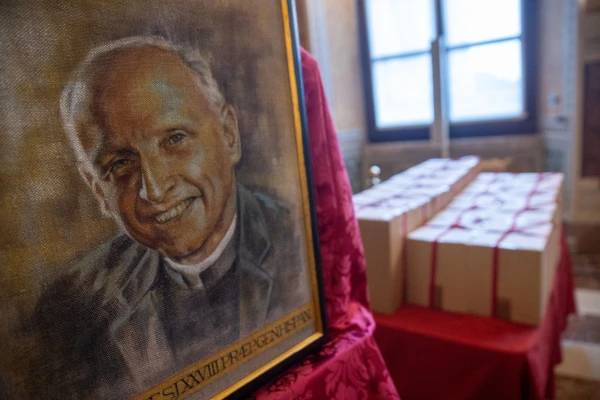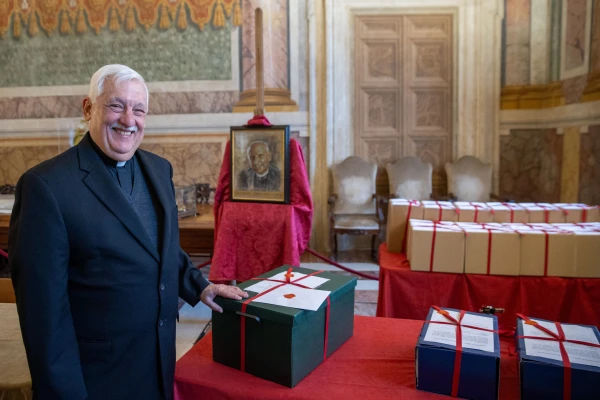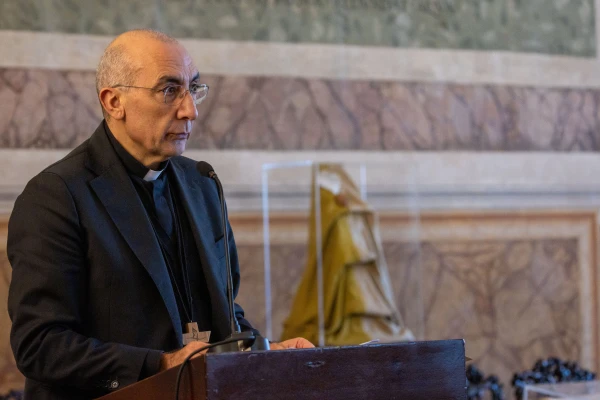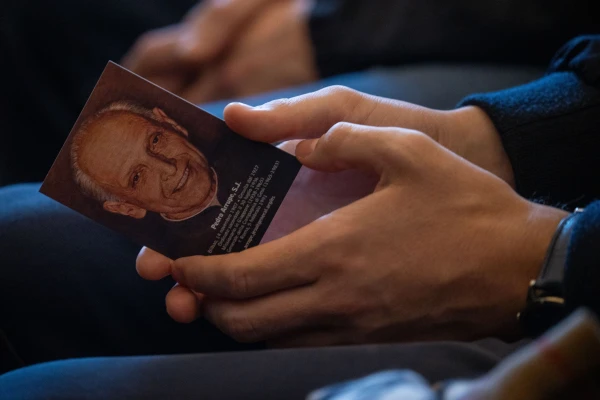November 14 marked the closing of the diocesan phase of the beatification cause of Father Pedro Arrupe, notable Jesuit and 28th Superior General of the Society of Jesus, at the Lateran Palace in Rome.
After more than five years of exhaustive research into the life, virtues and reputation for holiness of this prominent Spanish Jesuit, mentor and “spiritual father” of Pope Francis, the diocesan phase of the process was concluded.
Receive the main news from ACI Prensa by WhatsApp and Telegram
It is increasingly difficult to see Catholic news on social media. Subscribe to our free channels today:
Servant of God Fr. Pedro Arrupe SJ was the 28th superior general of the Society of Jesus from 1965 to 1983. In the 1970s, he emphasized social justice as one of the main focal points of Jesuit apostolic work.

Since February 2019, more than 70 witnesses from Spain, Rome and Japan, where he lived for 27 years as a missionary, have been questioned by the Vicariate Tribunal of Rome. Father Arrupe survived the atomic bomb of Hiroshima in 1945 and dedicated himself to caring for the wounded in a field hospital erected in the novitiate.
Now, the documents and minutes compiled by the Historical Commission will be delivered to the Dicastery for the Cause of Saints, which must evaluate a possible miracle attributed to his intercession, a crucial step to move towards his possible beatification.
The ceremony, which was celebrated on the day that would have marked the 117th anniversary of Father Arrupe’s birth, was presided over by Cardinal-elect Mons. Baldassare Reina, vicar general of the Diocese of Rome.
Members of the Society of Jesus were also present at this solemn ceremony, such as Father General, Arturo Sosa Abascal, and the postulator of the cause, Father Pascual Cebollada, who took an oath to have faithfully fulfilled his commission and highlighted his preference “for the poor and the fight for justice” as a result of his fervent prayer.

The notary Marcello Terramani, and the members of the diocesan tribunal were also present; Mons. Giuseppe D’Alonzo, episcopal delegate, and Fr. Giorgio Ciucci, promoter of justice.
Bishop Baldassare Reina praised the figure of the Jesuit leader, highlighting his efforts to put the Second Vatican Council into practice, as well as his deep obedience and fidelity to the Church and the Popes.

He also highlighted his evangelizing mission and his “preferential option” for the poor and needy, materialized in the Jesuit Refugee Service that he founded in 1980.
Father Arturo Sosa referred to the long hours that Father Arrupe spent in prayer daily. When asked where he found the time to do so, he often replied that “it’s simply a problem of priorities.”
The ceremony held in Rome also reflected his charisma and good relationship with those who did not belong to the Catholic Church. Father Arrupe’s efforts to ensure that the laity assumed responsibilities, as well as his welcoming character, were also valued.
After reviewing the documents from the diocesan phase, the Vatican dicastery will study the possibility of declaring Father Arrupe “venerable,” a title that Pope Francis can grant him if it is determined that he lived a holy and virtuous life.

If this happens, the next step would be beatification, which would grant him the title of “blessed.” This requires that at least one miracle be attributed to his intercession. For canonization and to be proclaimed a saint, a second miracle must be confirmed.
It should be remembered that during his private meeting with priests of the Society of Jesus on his trip to Singapore last September, Pope Francis expressed his desire for the Spanish Jesuit to be declared a saint.

